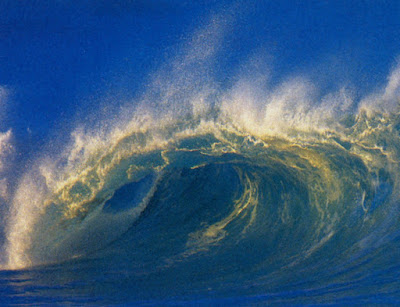Richard Murphy on North
SEPTEMBER 30, 1976
He was born on a farm in a townland called Mossbawn, near Lough Neagh between Belfast and Derry, thirty-seven years ago, the eldest of nine children in a Catholic family. After six years at St. Columb’s College, run by the Diocesan priests, in Londonderry, he studied English language and literature at Queen’s University in Belfast, where he began to write poetry under the spell of Gerard Manley Hopkins. His first volume, Death of a Naturalist, was published ten years ago in 1966. “Words as bearers of history and mystery began to invite me,” he has said about this period in his life. By birth and upbringing he belonged to the ancient world of the Irish countryside and traditional culture, with roots in a pre-Christian legendary past: but his education brought him into the modern world, where he discovered English poetry. The tension you can feel in Ireland between the two cultures, you also feel in his poetry.
Richard Ellmann on Station Island
MARCH 14, 1985
After the heavily accented melodies of Yeats, and that poet’s elegiac celebrations of imaginative glories, Seamus Heaney addresses his readers in a quite different key. He does not overwhelm his subjects; rather he allows them a certain freedom from him, and his sharp conjunctions with them leave their authority and his undiminished. There are none of Yeats’s Olympians about; the figures who appear in Heaney’s verse have quite human dimensions.
Helen Vendler on The Haw Lantern
APRIL 28, 1988
Heaney is a poet of abundance who is undergoing in middle age the experience of natural loss. As the earth loses for him the mass and gravity of familiar presences—parents and friends taken by death—desiccation and weightlessness threaten the former fullness of the sensual life.
James Fenton on The Spirit Level and The Redress of Poetry
JULY 11, 1996
The general praise that greeted his being awarded the Nobel Prize last year might tempt one to forget that this immensely popular poet has often had a bumpy ride, that he has not been short of critics, not least among his fellow poets.… Certainly in Heaney criticism there is a topos: Why does Heaney get all the attention, when poet X or Y is so much more this, so much more that? It seems Heaney was thought to have had a knack of soaking up all the available attention.
Fintan O’Toole on Opened Ground: Selected Poems 1966-1996
MARCH 4, 1999
That power to transform things as they are into things as they might be conceived is the poet’s true property. In a dark time, Heaney has held open a space for the imagination by showing that people are not necessarily prisoners of the physical reality that seems to doom them to conflict.
Anthony Hecht on Finders Keepers: Selected Prose, 1971–2001
DECEMBER 5, 2002
In the course of time a number of young poets have asked me what I would recommend that they read—apart from poems themselves—to help them understand their craft—not in a handbook way, but as informal discourse. And I have proposed a number of texts that provoke long and lively thought, most often among them the letters of Keats. I get asked that question less frequently these days, but if a young writer were to come up with the same question I would now happily and gratefully add Finders Keepers.
John Banville on Human Chain
NOVEMBER 11, 2010
The mourning bell tolls throughout Human Chain, Seamus Heaney’s twelfth collection of poems, but the sound it makes is a sonorous call to life and continuity: “The dead here are borne/Towards the future.”









